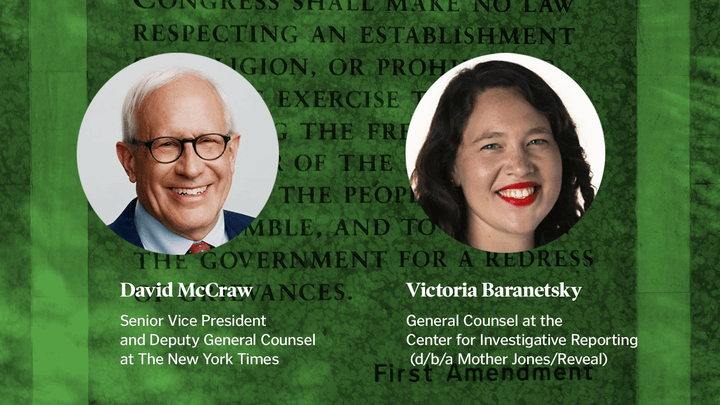Entrances and exits have become commonplace as the newspaper business consolidates in 2018, but over the last 10 days, the pace has become dizzying.
Management of Digital First Media and parent company Alden Global Capital battled with internal critics in a face-to-face meeting early last week with the staff of The Denver Post.
Mike Reed, CEO of New Media Investment Group, the parent of GateHouse, mounted a public rebuttal to stories casting the company as a corporate villain for cutting newsroom staff at the many properties it has bought.
Both seem to be following the political advertising axiom, "don't let your opponent define you."
Meanwhile, the 110 papers (not all of them dailies) of CNHI were put on the block Monday.
There are a variety of prospective buyers for CNHI or individual clusters of its newspapers, but GateHouse is at the top of the list. Digital First Media could be a player, too.
And Tuesday, Warren Buffett's BH Media announced an agreement to let Lee Enterprises manage its 30 news and digital properties. Lee will get both a fee and a percentage of any improvement in profits it can make happen.
The announcement did not say, but my guess is that Lee is now positioned to acquire the BH papers at a later date. The move indicates Buffett's souring on the prospects of local newspapers, as he has said at recent shareholder gatherings, and a sort-of phased withdrawal from the business.
I sensed a change coming at GateHouse two weeks ago when I wrote about the News Guild's successes in organizing and asked if GateHouse had a comment on recent negotiations. CEO Reed returned the call.
Besides adding a detail of the talks that the Guild had omitted (he created a 2 percent raise pool for non-union employees), Reed had three more points to make:
- Some of the staff reductions in local newsrooms are simply the result of transferring jobs to GateHouse's growing editing and page production center in Austin, Texas.
- He would hope the Guild would see, Reed said, that cuts now "will help us get to a place where we can employ more of their members five years from now." But he conceded that many journalists don't see it that way.
- New Media/Gatehouse and Alden/Digital First ought not to be lumped together, Reed argued. Alden is a direct owner and gets any profit the 70 Digital First dailies generate. New Media is a public company, actually one that has prospered in part by paying shareholders a generous dividend. Its relation to giant hedge fund Fortress Investment is essentially a management contract.
Reed amplified on all this and more in a lengthy interview last week with analyst Ken Doctor. Along the way he dropped that the company will probably put $300 million more into acquisitions over the next year, having now fulfilled a pledge to do $1 billion in purchases.
Reed leads regular quarterly financial calls with analysts and has been accessible on other occasions. But the Alden/Digital First crew was getting to be nearly as notorious for stonewalling requests for comment as for slashing newsroom staff at Post and other properties.
Alden founder Randy Smith and CEO Heath Freeman remain bunkered in New York, but Digital First board chairman Joseph Fuchs, a longtime associate of Smith's, ventured west to face his mutinous troops.
Those proceedings a week ago, recorded verbatim by the Guild, were contentious but not at a shouting match pitch.
Fuchs opened, in the same vein as Reed, by saying:
"There’s no total magic for this thing. Make no mistake, there is nobody that wants this business to succeed more than the board … Ownership does not want to lose money, they want to make money, and it’s like a public company. And every quarter counts. However we have gone through a period where, clearly the focus is on the three-to-five year timeline, not every quarter, and what we’re trying to do is have a sustainable and a profitable operation. And I think that we’ve moved a long way towards that, not without pain."
Reporters pushed back hard at Fuchs' assertion that Digital First profit levels were average for the industry (most estimates put them at the high end).
He also tried to counter the storyline that Alden is looting its papers to cover other risky investments. Rather, Fuchs said, the hedge fund invests in various turnaround opportunities, conceding that one (Fred's Pharmacy) has not worked out well.
Some of the editors and reporters who are Post alums have organized a startup site, The Colorado Sun, one of several digital-only news competitors to the Post in Denver. I doubt that Fuchs' visit along with COO Guy Gilmore will turn around the bad vibe that pervades what's left of the Post newsroom, but I read the appearance as a signal that Alden and Digital First are there for the foreseeable future, rather than looking to sell.
As for CNHI, they were absorbed into Raycom Media, a local broadcasting company, last September. Both are based in Montgomery and have a heavy investment from the Alabama teachers' union so it was more a combination than a takeover.
When Raycom announced its sale Monday to Gray Television in a huge $3.65 billion deal, the decision to unload the newspaper holdings should not have been surprising. Prospering local broadcast operations no longer want to have their share price dragged down with the declining revenues of newspapers. That was the impetus for previous splits of Gannett and Tribune into separate publishing and TV companies.
Since CNHI is a private company, I don't know its revenues or what its holdings, together or broken into parts, might fetch. But as has been noted during the steady sale of family-owned papers lately, the pool of buyers. especially for smaller properties, includes groups like Ogden Newspapers and Adams Media Group — not just the giants like GateHouse.
I read between the lines that CNHI may also lag in integrating technology and managing print and digital transformation profitably. That is almost certainly the case for Buffett's BH Media, assembled on the fly six years ago, mainly with the purchase of Media General's newspaper properties and some add-ons in Virginia, North Carolina and Buffett's hometown of Omaha, Nebraska.
Buffett was forthright when announcing the deal in saying that Lee has been in the business longer and will be able to do some of the work integrating operations and therefore be more profitable.
And Buffett, with a share in refinancing the debt Lee took on when it acquired Pulitzer in the 2000s, would be in a position to lend money (and make a return) for a merger, should that make sense later on.
The market was enthusiastic about the deal, with Lee shares trading up roughly 20 percent for the day.
All these moves at once take some digesting. Safe to say, though, that consolidation marches on and owners — be they family or chains — who are not up to the curve in all things digital and cost-squeezing are seeking out partners who are.
Still smaller newsrooms in the offing? I would bet on it.







